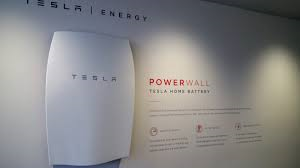
Breaking News
 Outrage Erupts as Released MS-13 Gang Member Kilmar Abrego Garcia...
Outrage Erupts as Released MS-13 Gang Member Kilmar Abrego Garcia...
 The backbone of U.S. capital markets just got the green light to move $100 trillion onchain
The backbone of U.S. capital markets just got the green light to move $100 trillion onchain
 SILVER IS ENTERING A "GENERATIONAL" SQUEEZE.
SILVER IS ENTERING A "GENERATIONAL" SQUEEZE.
Top Tech News
 EngineAI T800: Born to Disrupt! #EngineAI #robotics #newtechnology #newproduct
EngineAI T800: Born to Disrupt! #EngineAI #robotics #newtechnology #newproduct
 This Silicon Anode Breakthrough Could Mark A Turning Point For EV Batteries [Update]
This Silicon Anode Breakthrough Could Mark A Turning Point For EV Batteries [Update]
 Travel gadget promises to dry and iron your clothes – totally hands-free
Travel gadget promises to dry and iron your clothes – totally hands-free
 Perfect Aircrete, Kitchen Ingredients.
Perfect Aircrete, Kitchen Ingredients.
 Futuristic pixel-raising display lets you feel what's onscreen
Futuristic pixel-raising display lets you feel what's onscreen
 Cutting-Edge Facility Generates Pure Water and Hydrogen Fuel from Seawater for Mere Pennies
Cutting-Edge Facility Generates Pure Water and Hydrogen Fuel from Seawater for Mere Pennies
 This tiny dev board is packed with features for ambitious makers
This tiny dev board is packed with features for ambitious makers
 Scientists Discover Gel to Regrow Tooth Enamel
Scientists Discover Gel to Regrow Tooth Enamel
 Vitamin C and Dandelion Root Killing Cancer Cells -- as Former CDC Director Calls for COVID-19...
Vitamin C and Dandelion Root Killing Cancer Cells -- as Former CDC Director Calls for COVID-19...
 Galactic Brain: US firm plans space-based data centers, power grid to challenge China
Galactic Brain: US firm plans space-based data centers, power grid to challenge China
Tesla Powerwall 2 Is The Best Of The Best: 30% Cheaper Than The Competition

The new Tesla Powerwall 2.0 not only beats competitors, but second best model is 30% behind Tesla on price per warranted kWh under 1 cycle per day utilization.
Tesla Powerwall 2.0 (unveiling story) is 14 kWh ESS (13.5 kWh usable) with 10 years warranty, with built-in inverter (AC version) or DC converter (DC version). Up to 9 units can be installed in one system.
Having built-in inverter makes Powerwall 2.0 even more attractive compared to other ESS.
"The SolarQuotes Battery Comparison table gives the cost per warrantied kilowatt-hour for over 30 battery systems when fully cycled once per day. The results are shown in the graph below, and as you can see, both versions of the Powerwall 2 are well ahead of the closest competition.
The Powerwall 2 is almost 30% cheaper than its next closest competitor, but the comparison is actually better than the graph makes it appear because the AC version of the Powerwall 2 includes a built in battery-inverter and the DC version includes a built in DC converter while its closest competitors on cost per stored kilowatt-hour do not.

 This is not a bubble.
This is not a bubble.


